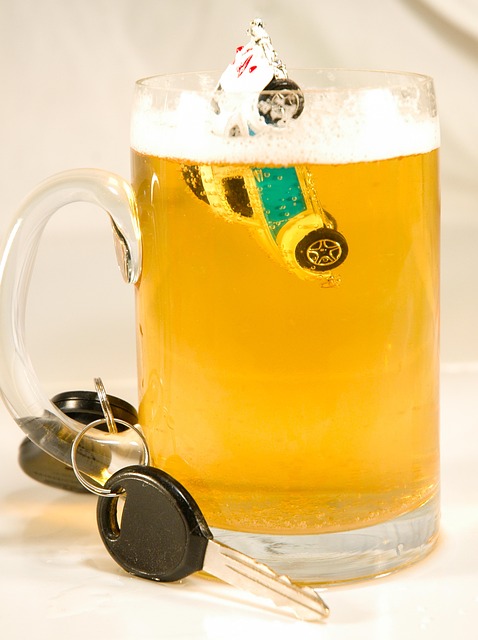Teen driving under the influence (DUI) poses a significant threat to pedestrians in urban areas, with severe consequences for individuals, families, and communities. Protecting pedestrians' rights is crucial as they are often vulnerable to severe injuries or fatalities caused by distracted or intoxicated drivers. Raising awareness and stringent laws can deter teens from risky behaviors, ensuring safer roads. Teen rehabilitation programs focusing on accountability, education, and behavior modification mitigate risks, empowering teens to make responsible choices and prioritize pedestrians' rights in DUI incidents. Understanding minor's unique legal rights during DUI cases ensures fair outcomes, while specialized services in rehab programs educate teens about their rights and foster positive habits. Holistic community support post-rehab, including advocacy for pedestrians' rights, promotes personal growth, accountability, and prevents future setbacks.
In the realm of teen rehabilitation, “Teen Rehabilitation Back on Track” explores a critical issue affecting families and communities: underage drinking and driving (DUI). Understanding the growing concern of Teen DUI involves examining its impact on vulnerable pedestrians and the legal rights of minors entangled in these incidents. This article delves into effective rehab programs tailored for teens, highlighting successful strategies. Additionally, it navigates supporting youths post-rehab through a holistic approach, emphasizing community integration and fostering positive growth.
- Understanding Teen DUI: A Growing Concern
- The Impact on Families and Communities
- Legal Rights of Minors in DUI Cases
- Rehabilitation Programs Designed for Teens
- Effective Strategies for Back-on-Track Success
- Supporting Teens Post-Rehab: A Holistic Approach
Understanding Teen DUI: A Growing Concern

Teen driving under the influence (DUI) is a pressing issue that demands immediate attention. As young minds navigate their path to adulthood, the allure of independence and freedom can sometimes lead to reckless decisions, particularly when it comes to alcohol consumption and getting behind the wheel. The consequences of teen DUI are far-reaching, impacting not only the individual but also their families and communities.
In many cases, teen DUI incidents involve not just fellow teenagers but also pedestrians, who may find themselves at the mercy of an impaired driver. Protecting pedestrians’ rights in these DUI-related incidents is paramount. Pedestrians, especially in urban areas, are vulnerable to severe injuries or even fatalities caused by distracted or intoxicated drivers. Raising awareness and implementing stringent laws can help deter teens from engaging in such risky behaviors, ensuring safer roads for everyone.
The Impact on Families and Communities

The impact of teen rehabilitation extends far beyond the individual, profoundly affecting families and communities at large. When a teenager engages in risky behaviors like drunk driving (DUI), it can create a ripple effect that reverberates through households and neighborhood networks. Families often bear the brunt of emotional turmoil, financial strain, and legal consequences resulting from such incidents. The stress and potential trauma experienced by parents and siblings cannot be understated, as they navigate the challenges that arise from having a loved one involved in a DUI—a situation that can severely disrupt their day-to-day lives and long-term stability.
Moreover, communities also suffer when teens veer off track due to poor decision-making. Pedestrians’ rights in DUI incidents become a pressing concern as the safety of public spaces is compromised. Teenagers who drive under the influence not only endanger themselves but also put at risk the lives of others—including pedestrians and fellow motorists. Rehabilitation programs that focus on accountability, education, and behavior modification play a pivotal role in mitigating these risks. By addressing the underlying issues and empowering teens with life skills, these programs foster responsible choices, ultimately contributing to safer communities and restored families.
Legal Rights of Minors in DUI Cases

In the context of DUI (Driving Under the Influence) cases involving minors, understanding the legal rights of young individuals is paramount for fair and just outcomes. Minors, like all citizens, possess certain protections under the law, especially when facing charges that could significantly impact their future. These rights ensure that the process remains balanced and that their interests are considered alongside public safety concerns.
One crucial aspect is recognizing the distinct legal standing of minors compared to adults in DUI incidents. This includes specific procedures for arrest, questioning, and representation by legal counsel. Additionally, there are strict guidelines regarding how evidence is handled and presented, with a strong emphasis on protecting the rights of pedestrians as well, ensuring that their interactions with law enforcement during such cases are conducted fairly and respectfully.
Rehabilitation Programs Designed for Teens

Teen rehabilitation programs are tailored to address the unique needs and challenges faced by young individuals who have encountered legal or personal issues. These programs recognize that adolescence is a critical period for development, and effective interventions can shape their future paths. One key area of focus is educating teens about their rights, especially in scenarios like DUI (Driving Under the Influence) incidents. Understanding their entitlements ensures they receive fair treatment and appropriate support throughout the legal process.
Rehabilitation facilities equipped to handle teen cases often offer specialized services, including counseling sessions, educational workshops, and skill-building activities. The goal is not only to address immediate concerns but also to equip teens with tools for long-term success. By providing a supportive environment and evidence-based strategies, these programs aim to help young people regain control of their lives, learn from their mistakes, and develop positive habits that will serve them well into adulthood, including respecting pedestrians’ rights on the road, adhering to traffic laws, and making responsible choices.
Effective Strategies for Back-on-Track Success

Rehabilitating teens after a misstep is a multifaceted process that requires tailored strategies for optimal success. One critical aspect often overlooked is empowering adolescents with their rights, especially in scenarios involving DUI (Driving Under the Influence). Educating them about their pedestrians’ rights in such incidents can be transformative. Understanding their legal protections and options equips them to navigate the system more confidently, fostering a sense of agency during a vulnerable time.
By promoting awareness of these rights, teens can actively participate in their recovery journey. It enables them to make informed decisions, seek necessary support, and advocate for themselves throughout the rehabilitation process. This approach not only enhances their understanding of personal freedoms but also encourages responsibility and accountability—key factors in sustainable rehabilitation and a successful return to a productive life.
Supporting Teens Post-Rehab: A Holistic Approach

After completing a rehabilitation program, teenagers returning to their communities require ongoing support to maintain their recovery. This holistic approach involves addressing various aspects of their lives, including mental health, education, and social reintegration. Community resources play a pivotal role in ensuring these young individuals can thrive post-rehab. One critical area of focus is advocating for the pedestrians’ rights of those involved in DUI incidents, as it highlights the broader issue of responsible decision-making and community safety.
By providing mentorship and access to counseling services, schools, and recreational activities, communities can help teens stay on track. This comprehensive support system not only assists in their personal growth but also ensures they remain accountable for their actions. Additionally, involving families and caregivers in this process fosters a sense of responsibility and encourages open communication, which is vital for preventing future setbacks.
Teen rehabilitation is a vital step towards ensuring a brighter future for young individuals who have faced DUI charges. By implementing tailored programs and adopting holistic support systems, we can significantly reduce recidivism rates. Understanding the legal rights of minors, offering evidence-based rehab options, and providing ongoing community support are key to helping teens turn their lives around. With the right resources, it’s possible for young people to overcome this challenge and reclaim their futures, protecting not only themselves but also the well-being of their families and communities at large. Remember that, in navigating these sensitive issues, a comprehensive approach that respects pedestrians’ rights in DUI incidents is essential for fostering positive outcomes.






